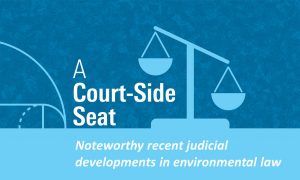 Hydrogen is the new buzzword in every industry, and real estate is no exception. Hydrogen does not emit carbon dioxide when burnt and could therefore help reduce the climate impact of buildings, which in aggregate represent one of the biggest emitters of greenhouse gases after industry and surface transport. To the extent that hydrogen is to become an important power source globally, it will need to enter the domestic power market. The first step appears to be the development of pilot villages.
Hydrogen is the new buzzword in every industry, and real estate is no exception. Hydrogen does not emit carbon dioxide when burnt and could therefore help reduce the climate impact of buildings, which in aggregate represent one of the biggest emitters of greenhouse gases after industry and surface transport. To the extent that hydrogen is to become an important power source globally, it will need to enter the domestic power market. The first step appears to be the development of pilot villages.
Evaluating Smart Home Technology: It’s About More Than the Bottom Line
 Outfitting a commercial real estate space with smart technology can be a significant cost. While the long-term benefits and strategic improvements we’ve discussed previously can make that investment worthwhile, the evaluation period is critical to ensure an impactful ROI. Property developers, owners, and managers should undertake a rigorous evaluation process to ensure the technology procurement aligns with the project’s overall financial plan. And this is not just about getting the cost right. If the technology does not meet the needs of the space, then all the smart technology in the world will not prevent the project from being a sunk cost.
Outfitting a commercial real estate space with smart technology can be a significant cost. While the long-term benefits and strategic improvements we’ve discussed previously can make that investment worthwhile, the evaluation period is critical to ensure an impactful ROI. Property developers, owners, and managers should undertake a rigorous evaluation process to ensure the technology procurement aligns with the project’s overall financial plan. And this is not just about getting the cost right. If the technology does not meet the needs of the space, then all the smart technology in the world will not prevent the project from being a sunk cost.
How Will the Office Market Recover?
Pandemic Does Not Satisfy Lease’s Casualty Clause Court Finds
One year into the pandemic, courts have almost uniformly found that COVID-19 does not permit commercial tenants to avoid their rent payment obligations. In this case, the court continued that trend, ruling that the pandemic was not a “casualty” that permits a tenant to abate its rent payments or cancel its lease. Authors Patrick J. Potter, Christian A. Buerger, Hugh M. McDonald, Patrick E. Fitzmaurice, and Jonathan Doolittle discuss a new case from the Southern District of New York that extends the trend of courts enforcing leases against tenants forced to close due to the impact of the COVID-19 pandemic in “Court Finds Pandemic Does Not Satisfy Lease’s Casualty Clause.”
Oregon Tax Court Rejects Department’s Attempt to Ignore Measure 50 Limitation
Zachary T. Atkins on Tesoro Logistics Northwest Pipeline LLC v. Department of Revenue, the Oregon Tax Court, Regular Division, held that although a unit of property acquired by one centrally assessed company from another qualified as “new property” for purposes of Or. Const. Art. XI, § 11 (“Measure 50”), the unit of property’s existing maximum assessed value (“MAV”) was preserved in the hands of the new owner. Tesoro Logistics Nw. Pipeline LLC v. Dep’t of Revenue, No. TC 5252, 2021 WL 6700471 (Or. Tax Ct., Reg. Div., Feb. 19, 2021). As a result, the Oregon Department of Revenue was not entitled to redetermine the MAV on account of the acquisition. Continue reading on the SeeSALT blog.
The Court-Side Seat: FERC Reviews, Panda Power Plaints and Sovereign Immunity
This is a brief report on new environmental law decisions, regulations and legislation.
THE U.S. SUPREME COURT
Massachusetts Lobsterman’s Association v. Raimondo, Secretary of Commerce
On March 22, 2021, the Supreme Court rejected a petition to review a Presidential decision to invoke the Antiquities Act of 1906 to designate as a monument “an area of submerged land about the size of Connecticut” in the Atlantic Ocean. This action forbids all sorts of economic activity, which compelled the filing of litigation in the First Circuit challenging this designation. Chief Justice Roberts supported the Court’s denial of certiorari, but remarked that a stronger legal case may persuade the Court to review such liberal uses of the Antiquities Act.
A Court-Side Seat: Clean Air, Clean Water, Endangered Species and Deliberative Process Privilege
The federal courts have issued some significant environmental law rulings in the past few days.
THE U.S. SUPREME COURT
U.S. Fish and Wildlife Service v. Sierra Club, Inc.
On March 4, 2021, the court held that the deliberative process privilege of the Freedom of Information Act shields from disclosure in-house draft governmental biological opinions that are both “predecisional” and deliberative. According to the court, these opinions, opining on the Endangered Species Act (ESA) effects on aquatic species of a proposed federal rule affecting cooling water intake structures—which was promulgated in 2019—are exempt from disclosure because they do not reflect a “final” agency opinion. Indeed, these ESA-required opinions reflect a preliminary view, and the Services did not treat them as being the final or last word on the project’s desirability. The Sierra Club, invoking the FOIA, sought many records generated by the rulemaking proceeding, and received thousands of pages. However, the Service declined to release the draft biological opinions that were created in connection with the ESA consultative process.
Eligibility for Shuttered Venue Operator Grants Extended, Congress Appropriates New Funds
The American Rescue Plan Act of 2021 permits Shuttered Venue Operators to apply for both Paycheck Protection Program loans and Shuttered Venue Operator Grants. The American Rescue Plan Act, signed into law on March 11, 2021 and summarized here, includes a brief but important section that will permit the recipients of Paycheck Protection Program (PPP) loans issued after December 27, 2020 to remain eligible for grants under the “Grants for Shuttered Venue Operators” (Grants) program, which the Small Business Administration (SBA) has yet to launch. Cecilia C. Wang, Jenny Y. Liu provide additional insights in “Congress Appropriates New Funds, Extends Eligibility for Shuttered Venue Operator Grants.”





